Communities in the Philippines unite to fight hunger
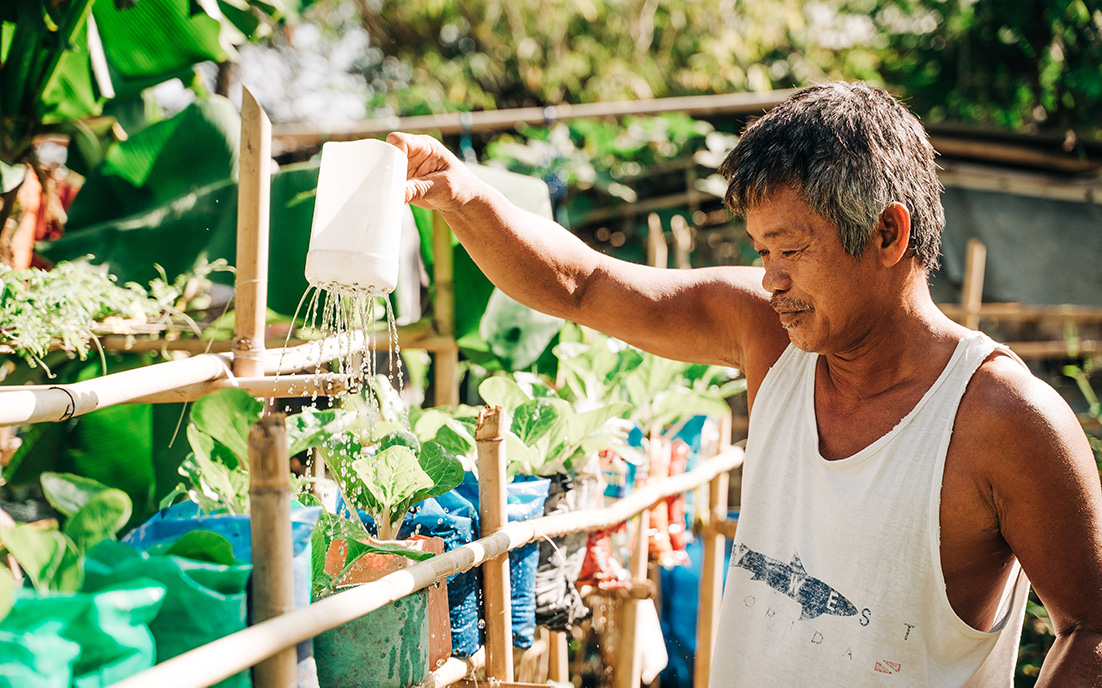
The organisation ARK helps Philippine communities become self-sufficient with backyard gardens and neighbourhood exchanges. Families of four can afford 3 meals a day with the programme. 19,000 families have already participated.
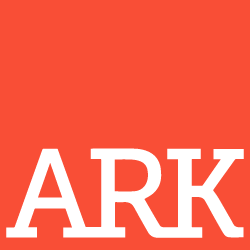
We support ARK – End hunger through vegetable exchanges
Ending hunger is one of the main goals of the 17 UN Sustainable Development Goals (SDGs). ARK is dedicated to achieving precisely this goal with their programme Feed Back. Feed Back is a vegetable exchange for communities in the Philippines and aims to help local people become self-sufficient and independent. The programme invites families to grow vegetables in their backyards and exchange their surplus harvest within their neighbourhood.
ARK is being supported by us in October 2023 – so with your search queries, you can actively generate money for this project!
Through Feed Back, ARK is dedicated to serving communities in rural areas that are most affected by hunger and poverty. ARK originally started in 2009 with a programme to provide healthy, affordable school meals. Especially parents and teachers were heavily involved in the programme. The aim was to create long-term, stable food sources by growing food in schools’ and families’ own gardens. With the COVID 19 pandemic, the situation changed, schools were suddenly closed and feeding the children became difficult.
The ARK team had to rethink how they could continue to move towards the goal of “No Hunger”. This resulted in the Feed Back programme in 2020. A 16-week programme involving entire communities to address hunger in their villages. Feed Back is designed to help villages and towns become self-sufficient in a very short time. Local families grow vegetables in their backyards and eventually trade the harvest with their neighbourhood at food exchanges. The exchange takes place once a week for a minimum of 8 weeks. Each family brings at least 3 kinds of vegetables and can take home their share of over 20 varieties. In addition, the families receive a raffle ticket for each vegetable variety worth one dollar and have the chance to win a prize.
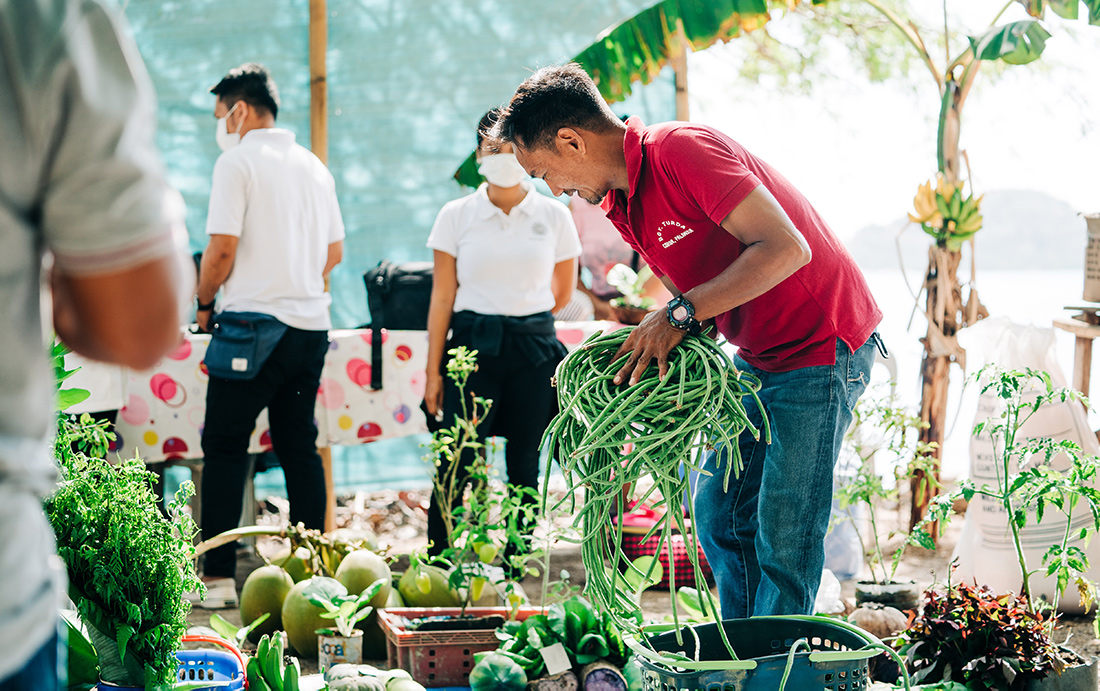
Many families even have surplus harvests that they can sell in addition to the exchange, for example to neighbouring communities. This creates new businesses and additional sources of income. The local community leaders and programme managers are accompanied by the ARK team during the 16-week period. Together, they identify individual goals for the local community, create operational plans and find ways to address structural problems.
In this way, ARK has gone through a total of 8 waves (a cycle is called a wave) in the last 3 years, in which they have supported 77 communities on their way to self-sufficiency. Each community and family has its own story to tell. Some of these stories are presented in ARK’s case studies. The changes that Feed Back brings to the communities are remarkable.
Aniniaw: The Transformation of a Mountainside Community (Wave 6)
The community of Aniniaw is located high in the mountains. Families mainly cultivate maize and raise livestock in these regions. Access to water and landslides pose serious problems for the community and food supply is often challenging. Before the programme started, about 15 children were affected by malnutrition. The situation became worse in December 2021 when the community was hit by a devastating typhoon that destroyed many houses in the community. This prompted Kapitan Marilyn (Kapitans or Kap are leaders of the smallest unit of governing body in the Philippines, the barangays.) to participate in the Feed Back programme. Her big goal: to provide the families of Aniniaw with sufficient food in the long term. In doing so, the Aniniaw community drew inspiration from previous waves of feed-back communities, especially from their neighbouring communities in La Libertad. The experienced communities shared important planting tips and stories of lush gardens, building trust in the programme among Aniniaw residents. Marilyn and the Aniniaw councillors led by example and were the first to plant gardens.
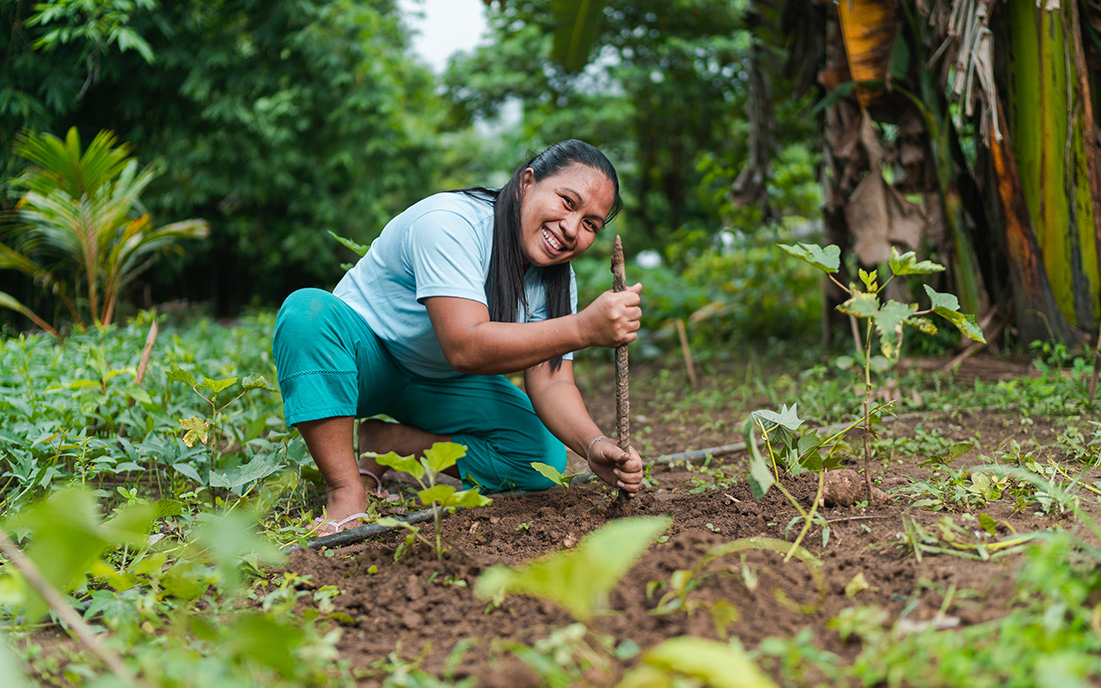
They visited 238 families, distributed seeds and taught the residents how to weatherproof their gardens. After 16 weeks, there is an evident change in Aniniaw. Instead of growing corn, the families produce 38 different vegetables every week. Kap Marilyn says: “Feed Back has helped the people in Aniniaw. Before ARK, people didn’t plant much. With ARK, they plant vegetables even on rocky ground. Now almost all families have gardens, thanks to ARK.” A total of 9,392 kilos of food was exchanged during the programme. This also defeated malnutrition in the village. With Kapitan Marylin, the community of Aniniaw has thus not only improved their food security but also established sustainable agriculture that can serve as a model for other communities and future waves of feedback.
Lawis: From Fishing to Vegetable Farming (Wave 8)
Another example of a flagship case is the community of Lawis of the last wave (April 2023). The coastal community of Lawis is mainly inhabited by fishers. To make matters worse, the village is regularly flooded by up to 2 meters, isolating the residents from the outside world and making it difficult for them to access food in the city centre. This problem gave Kapitan Hermenia, the head of the coastal community, the drive to participate in the Feed Back programme. Many of the local families were initially hesitant. Hermenia and the community council also started with home visits at first to inform the families, answer questions and distribute seeds and first vegetables from the families already involved. After the completion of Feed Back, the residents of Lawis now feel more secure. 78% of the population actively participated in Feed Back, even after the program ended. This gives them the opportunity to secure food for their families at home. The residents have learned to adapt their farming land to the tides by raising their gardens on platforms. They can also use additional income generated from the sale of vegetables to buy more protein-rich food. The success of Kap Hermenia and the people of Lawis has paved the way for six other coastal communities in the region who are now interested in implementing the programme.
A Safer Future for 138,000 People and Children
These examples show very clearly that Feed Back has been successfully established in some Philippine communities. Families of four can afford 3 nutritious meals a day with the programme. In addition, the nutritional value and variety of the food increases immensely. The programme is continuously growing in the Philippines. The last wave (Wave 8) was three times larger than previous runs, with 26 communities and 5,435 families (23,912 participants). In total, the programme can now be found in 8 provinces in the Philippines. To date, the organisation has supported more than 19,000 families through its work, transforming the lives of 138,000 people. Thanks to backyard gardens, exchanges, sales and savings, local families no longer have to worry about food. They now have savings available for other necessities such as electricity bills, education, medical care and much more. This creates a path for change for the communities towards a more secure and self-determined future.
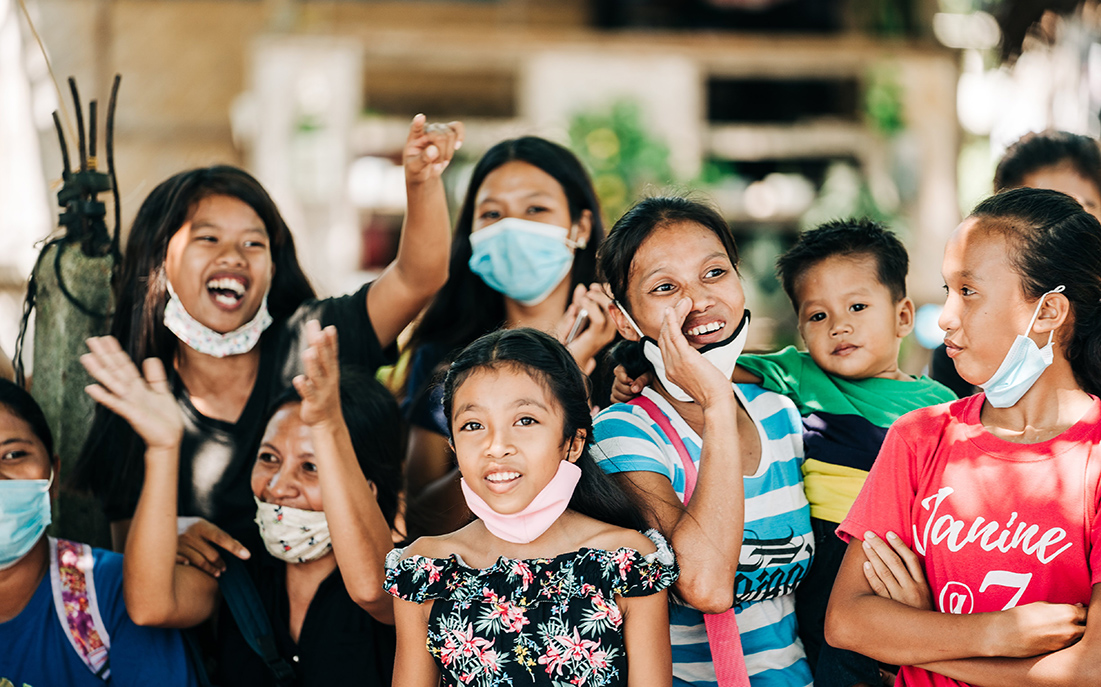
HOW DOES ARK WORK
- The Head of the Village Commits
The village leaders enter into the partnership and provide resources to ensure food security for the local people and to enable self-sufficiency for the families. - Uniting the Community and Distributing Seeds
Community leaders go door-to-door to educate families about the programme and distribute seeds. - The Families Plant
Families turn their backyards into gardens and grow vegetables for 4 weeks. - The Exchange Begins
From the 5th week onwards, those involved and responsible start the vegetable exchange, which always takes place at an open and central location in each neighbourhood.
MORE ABOUT THE PROJECT
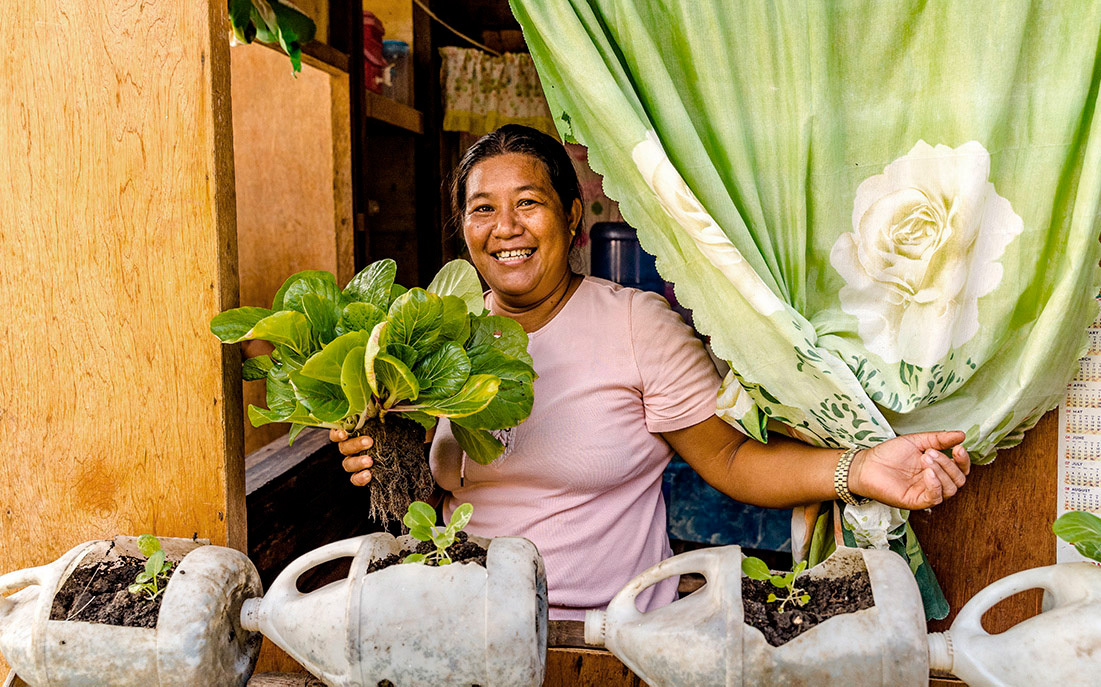
ARK
We are supporting ARK in October 2023 with the proceeds from GOOD. Find out more on our project page:
Questions, Critique, Ideas? Message us!
Andreas Renner, Co-Founder GOOD: andreas@good-search.org
